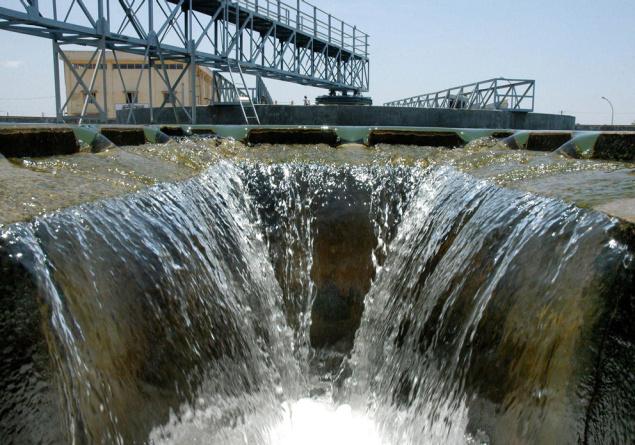NEW DELHI : The launch of Prime Minister Narendra Modi’s ambitious ‘Clean Ganga’ programme and of the Smart Ganga City Scheme, besides removal of final hurdle in Ken-Betwa river linking project and inauguration of the Afghan-India Friendship Dam (Salma Dam) were among the achievements of the Ministry of Water Resources, River Development and Ganga Rejuvenation this year.
However, the year also saw controversial issue of Cauvery water flaring up, forcing the Centre to intervene. The agitating states of Karnataka and Tamil Nadu were finally brought to the dialogue table.
The Ministry of Water Resources, River Development and Ganga Rejuvenation also constituted a high-level technical team headed by GS Jha, Chairman, Central Water Commission (CWC) to visit the Cauvery basin area to assess the ground realities in the basin.
During the year, first installment of Rs 1,500 crore was released to the states as central assistance for 99 prioritised irrigation projects under Accelerated Irrigation Benefits Program (AIBP).
Under the Namami Gange Programme, several projects were launched at various locations in Uttarakhand, Uttar Pradesh, Bihar, Jharkhand, West Bengal, Haryana and Delhi.
The Ministry also constituted a committee under the Chairmanship of Madhav Chitale to prepare guidelines for desiltation of river Ganga from Bhimgauda (Uttarakhand) to Farakka (West Bengal).
Besides, a committee was also formed to prepare draft Ganga Act which would be headed by Justice Girdhar Malviya (Retd).
The Committee has been asked to prepare a Draft Act on Ganga ensuring wholesomeness of the river.
The Act should have provisions to ensure cleanliness (Nirmalta) and uninterrupted e-flow (avirlta) of Ganga.
As part of Namami Gange programme, the government had set up Clean Ganga Fund for encouraging contributions from Resident and Non-Resident Indians, Persons of Indian origin, institutions, and corporates towards Ganga Rejuvenation and as on March 4, Rs 87.69 crore contribution has been received.
Another major initiative was the Smart Ganga City Scheme. The scheme was launched by Union Ministers–Uma Bharti and M Venkaiah Naidu– in ten cities of Haridwar, Rishikesh, Mathura-Vrindavan, Varanasi, Kanpur, Allahabad, Lucknow, Patna, Sahibgunj and Barrackpore.
Moreover, the allocation for ground water scheme was enhanced by 85 per cent and another major programme for sustainable ground water resources for Rs 6,000 crore was approved.
The Empowered Steering Committee (ESC) of the National Ganga River Basin Authority (NGRBA) approved projects for development of ghats and crematoria from Haridwar to Uttarakhand Border in Uttarakhand, Garhmukteshwar in Uttar Pradesh, Buxar, Hajipur and Sonepur of Bihar, Sahibganj, Rajmahal and Kanhaiya Ghat of Jharkhand and Delhi and afforestation along the banks of river Ganga at an estimated cost of Rs 2446 crore.
The year saw the inauguration of the landmark infrastructure project — the Afghan-India Friendship Dam (Salma Dam) executed by the Wapcos. Prime Minister Narendra Modi and Afghanistan President Ashraf Ghani jointly inaugurated the multipurpose project at Chist-e-Sharif in Herat province in Western Afghanistan.
The project would be generating 42 MW of power, irrigating 75000 hectares, water supply and other benefits to the people of Afghanistan. The Ministry also called a meeting of representatives of the Odisha and Chhattisgarh governments to consider various water resources issues and projects in the Mahanadi Basin.
Based on the satellite imageries, the Indian Space Research Organisation (ISRO) conducted a study on Paleo-channels in the North-Western part of the country and the study revealed that Paleo-channels originate from Himalayas and Aravallies and flowed further south in Haryana, Punjab, Rajasthan and Gujarat. (AGENCIES)


